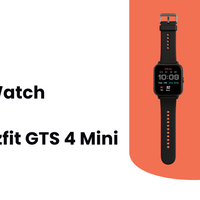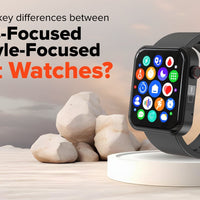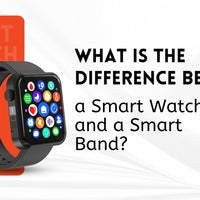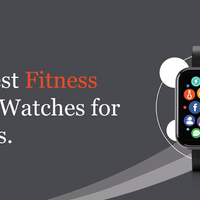Summary
-
Smartwatches offer health tracking, seamless connectivity, and daily convenience, making them a great investment for many.
-
Health features include step counting, heart rate monitoring, sleep tracking, and even ECG and blood oxygen monitoring.
-
Stay connected with calls, texts, and notifications on your wrist, plus hands-free tools like voice assistants and GPS.
-
Great for productivity and travel, with contactless payments, smart home control, and digital boarding passes.
-
Potential drawbacks include battery life, smartphone dependence, and a learning curve for some users.
-
Best for fitness lovers, busy professionals, and tech enthusiasts, but not necessary for those who prefer simplicity, rarely use technology, or favor traditional watches.
Yes, for many people, a smartwatch is absolutely worth it. These versatile devices combine health tracking, connectivity, and convenience into a compact, wearable gadget that can enhance daily life. However, whether or not you should invest in one depends on your lifestyle and needs.
If you're someone who values real-time health monitoring, seamless notifications, and hands-free convenience, a smartwatch might be an excellent addition to your routine. But if you're not tech-savvy or prefer traditional time pieces, you might find it unnecessary.
Keep reading to find out whether you really need one or not!

Key Benefits: Why a Smartwatch Might Be Worth It
1. Health and Fitness Tracking
One of the biggest reasons people buy smartwatches is for health and fitness tracking. Many smartwatches track:
-
Steps and calories burned throughout the day.
-
Heart rate monitoring, provides real-time updates on your cardiovascular health.
-
Sleep tracking, helping you understand sleep patterns and improve rest quality.
-
Stress level monitoring, giving insights into when you need to take a break.
Advanced models, like Life Watch, come with ECG (electrocardiogram) features and blood oxygen monitoring, which are particularly useful for individuals with heart conditions or those looking to track their overall well-being more closely.
For fitness enthusiasts, smartwatches act as virtual trainers that remind you to move, track your workouts, and set fitness goals. Whether you're jogging, cycling, or lifting weights, your smartwatch keeps you accountable.
2. Connectivity and Notifications
Smartwatches allow you to stay connected without constantly checking your phone. You can:
-
Receive and respond to calls, texts, and app notifications right from your wrist.
-
Customize which notifications you see, reducing distractions.
-
Use voice commands to send messages or answer calls hands-free.
For busy professionals, this feature is a game-changer. You no longer have to pull out your phone during meetings or while commuting. Everything important is visible with a quick glance.
3. Convenience and Productivity
A smartwatch isn't just about fitness and notifications but it also streamlines daily tasks. With features like:
-
GPS navigation, giving turn-by-turn directions while driving or walking.
-
Contactless payments, allowing you to pay with just a tap on your wrist.
-
Voice assistants, like Siri or Google Assistant, that help set reminders, check the weather, or control smart home devices.
For travelers, a smartwatch becomes even more useful, offering language translation, currency conversion, and digital boarding passes, eliminating the need to pull out a phone constantly.

Practical Uses in Daily Life
1. Fitness and Wellness
For those focused on health, smartwatches motivate users to stay active and maintain healthy habits. Real-time data allows for better self-awareness, helping users reach fitness milestones and adjust their routines as needed.
2. Work and Productivity
For professionals, smartwatches ensure seamless multitasking. Whether checking notifications discreetly during a meeting, setting calendar alerts, or using voice assistants to dictate notes, a smartwatch can boost efficiency without disrupting workflow.
3. Travel and On-the-Go Convenience
If you travel frequently, a smartwatch can be your best companion. It provides:
-
Navigation assistance, displaying routes without needing to check your phone.
-
Translation features, helping you communicate in different languages.
-
Quick access to boarding passes and itineraries, making airport travel hassle-free.
Style and Personalization
Unlike traditional watches, smartwatches allow for extensive customization:
-
Interchangeable watch bands let you switch between sporty, casual, and formal looks.
-
Customizable watch faces offer digital or analog styles to match your mood.
While traditional watches are often seen as luxury or fashion statements, smartwatches combine style with functionality so they are a more practical choice for everyday wear.
Cost vs. Benefits: Evaluating the Investment
Smartwatches come at different price points, from budget-friendly models to high-end devices. When deciding whether a smartwatch is worth the investment, consider:
-
How often will you use its features? If you’re active and tech-savvy, it’s a great investment.
-
Does it integrate well with your smartphone? Compatibility is key.
-
Battery life considerations. Some models last a day, while others last a week.
Compared to traditional watches, smartwatches offer more features but require more frequent charging and software updates. If functionality outweighs nostalgia for you, a smartwatch may be the better choice.
Potential Drawbacks of Smartwatches
While smartwatches offer many benefits, they also have some downsides:
-
Battery life is limited. Unlike traditional watches, which last years, most smartwatches require daily or weekly charging.
-
Smartphone dependence. Some features (like calls and messages) require a smartphone connection.
-
Learning curve. Older users or those less tech-savvy may find it overwhelming at first.
-
Higher upfront costs. Premium models can be expensive, and repairs or upgrades may add additional costs.
That said, these drawbacks are often outweighed by the convenience and functionality smartwatches provide.

Who Should (and Shouldn’t) Buy a Smartwatch?
Who Will Benefit Most?
-
Fitness enthusiasts who want to track their workouts and health data.
-
Busy professionals who need hands-free notifications and productivity tools.
-
Tech lovers who enjoy the latest gadgets and smart features.
-
Frequent travelers who benefit from navigation, translation, and payment options.
Who Might Not Need One?
-
Minimalists who prefer simple, no-fuss accessories.
-
People who rarely use technology and don’t rely on digital tools.
-
Those who prioritize battery life and dislike frequent charging.
Final Words
If you value health tracking, seamless connectivity, and daily convenience, a smartwatch is a worthwhile investment. While it does have some downsides, such as battery life and cost, the overall functionality and efficiency outweigh these concerns for many users.
Ultimately, the right smartwatch depends on your lifestyle. If you’re ready to enhance your daily routine with a feature-packed wearable, a smartwatch like Life Watch could be the perfect fit for you.















